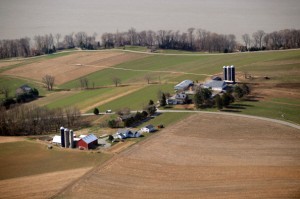The Susquehanna River Basin Commission’s New Rules for Radicals
-
Susan Phillips
The Susquehanna River Basin Commission wants to make sure their public comment sessions don’t turn into public protest. The Marcellus Shale boom has thrown the previously obscure agency into the public spotlight. The SRBC is tasked with regulating water withdrawals along the river’s 444 mile route from its headwaters in Cooperstown, New York, down to Havre de Grace, Maryland, where the river empties into the Chesapeake Bay. Drilling opponents disrupted a meeting in December, protesting the Commission’s role in permitting water withdrawals for fracking. In a press release announcing their public meeting next week, the SRBC reiterates its new rules, including the requirement to show a photo ID.
- All persons must sign-in and show photo identification.
- Signage, posters, banners or other display media will be permitted only in designated areas.
- The press will be permitted to set up and use video and recording devices in a designated area. The public will be permitted to use small, hand-held devices that remain in their possession and are used in a non-disruptive manner.
The Commission’s meeting in February was more orderly. But Commissioner’s got an earful from environmentalists who say the SRBC is neglecting its duty to also regulate water quality. Unlike the Delaware River Basin Commission, the SRBC has always maintained its role is simply water quantity. But environmental groups disagree. Damascus Citizens for Sustainability recently filed a public records request from the SRBC, which could indicate a forthcoming lawsuit.
An attorney for the group, Jeff Zimmerman, said the SRBC has allowed gas drilling to proceed full steam ahead, while neglecting its duty to protect water quality.
“We’re concerned that SRBC may be ignoring its water resources protection obligations and letting gas development proceed largely unchecked,” said Zimmerman. “We’re taking DRBC to task for the way it has failed to put the science first when it comes to developing gas regulations, but things may be even worse with the SRBC.”
Damascus Citizens is one of the more vocal groups pushing the Delaware River Basin Commission to continue its moratorium on drilling.

















